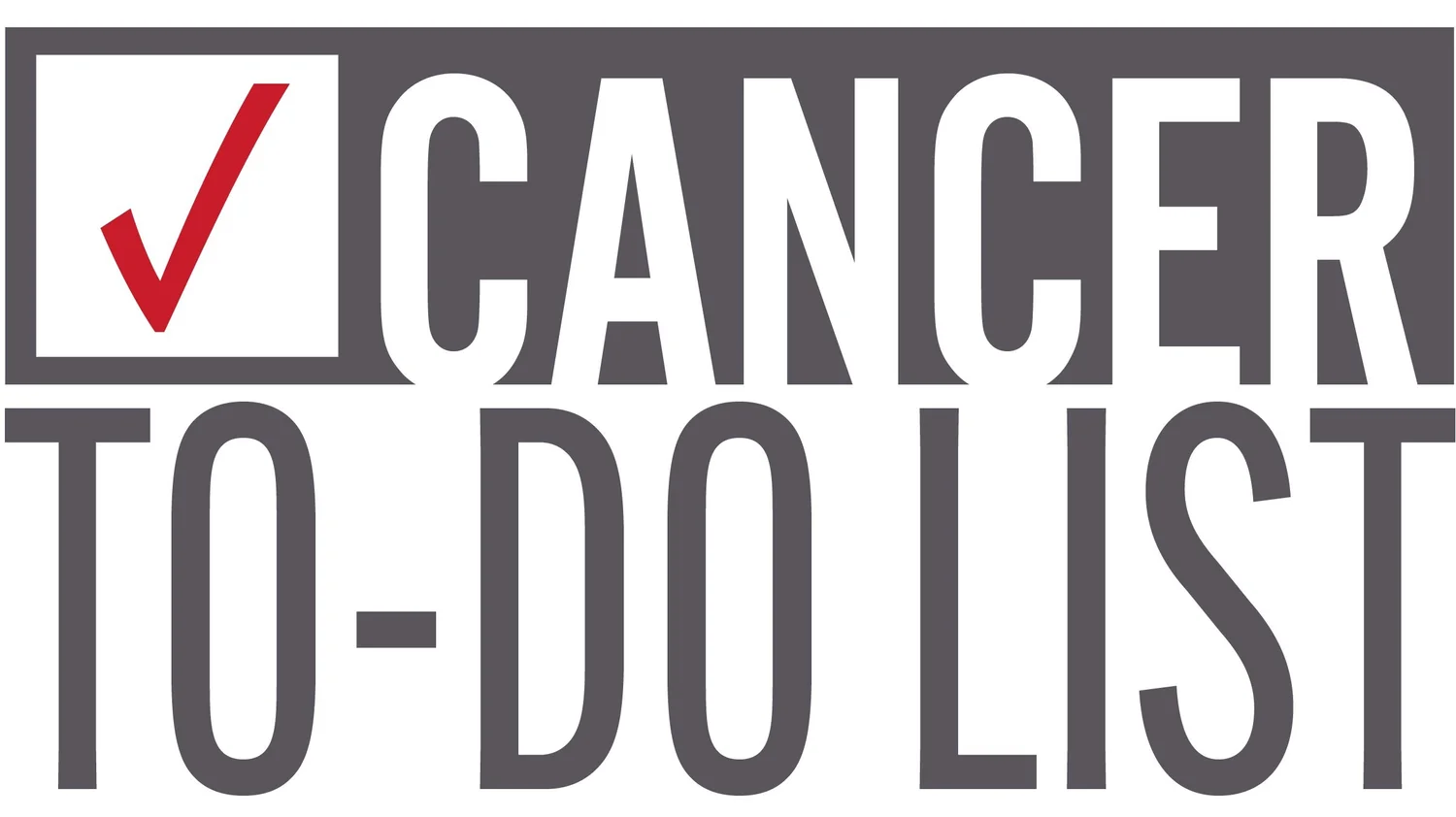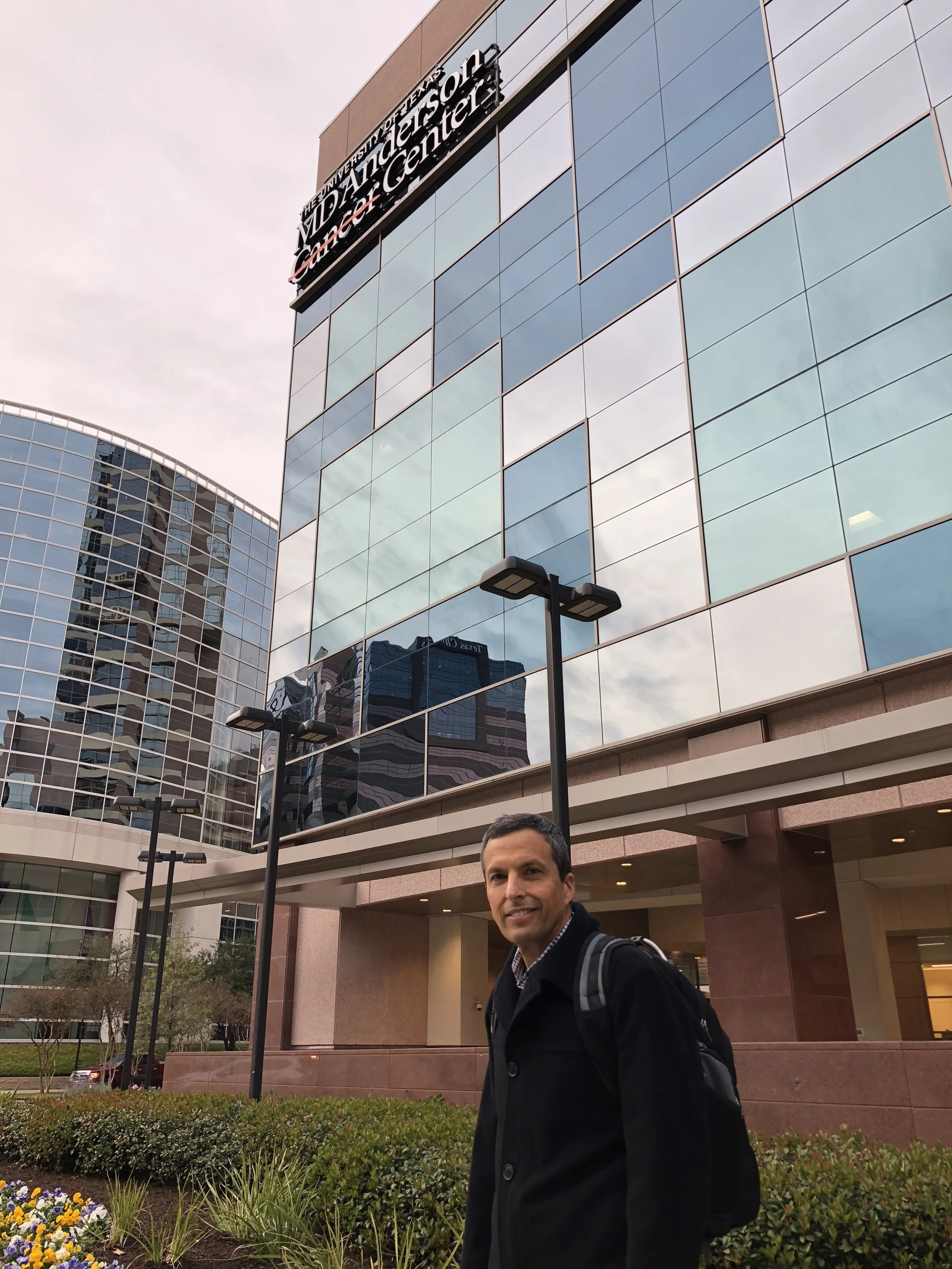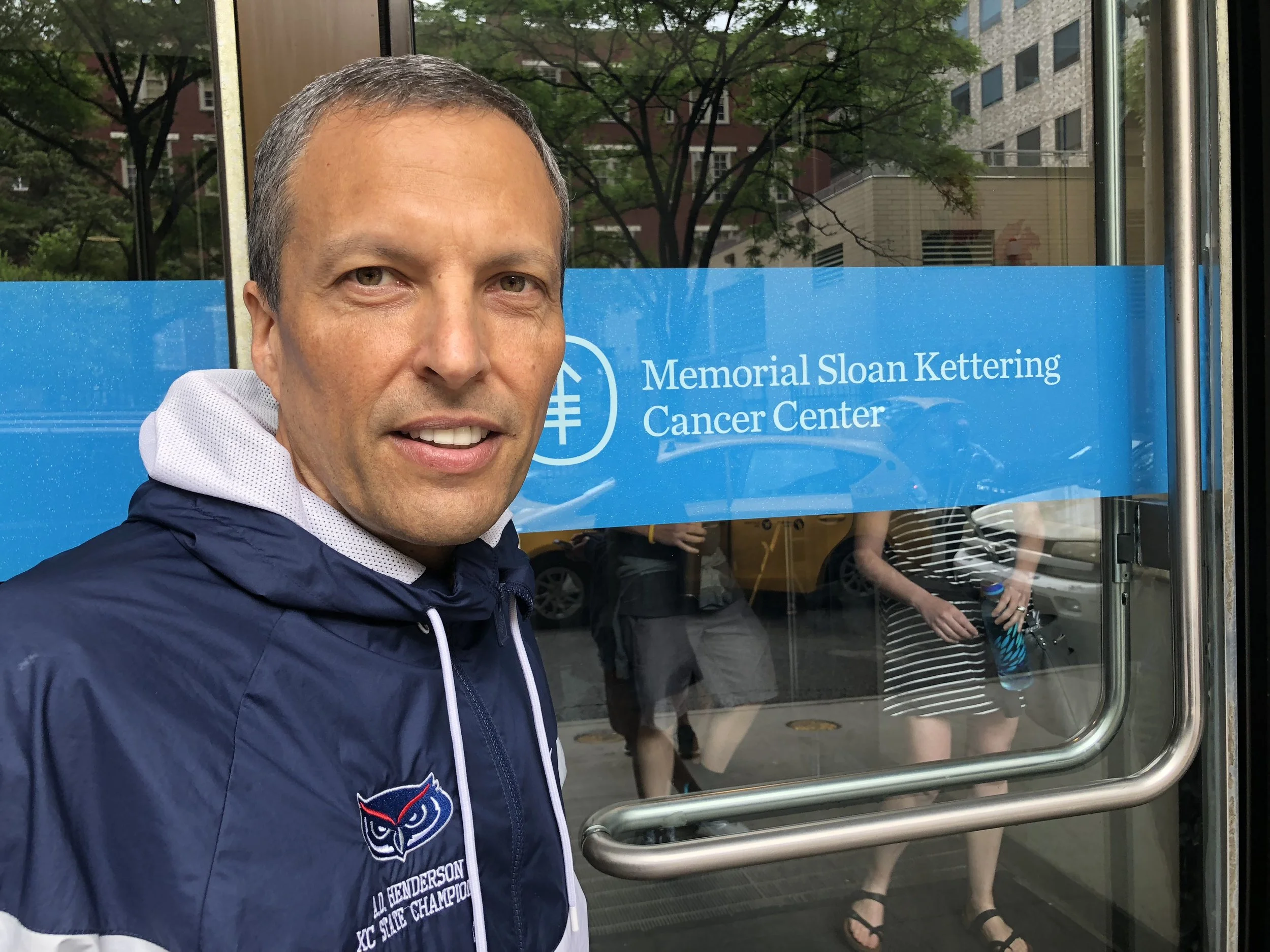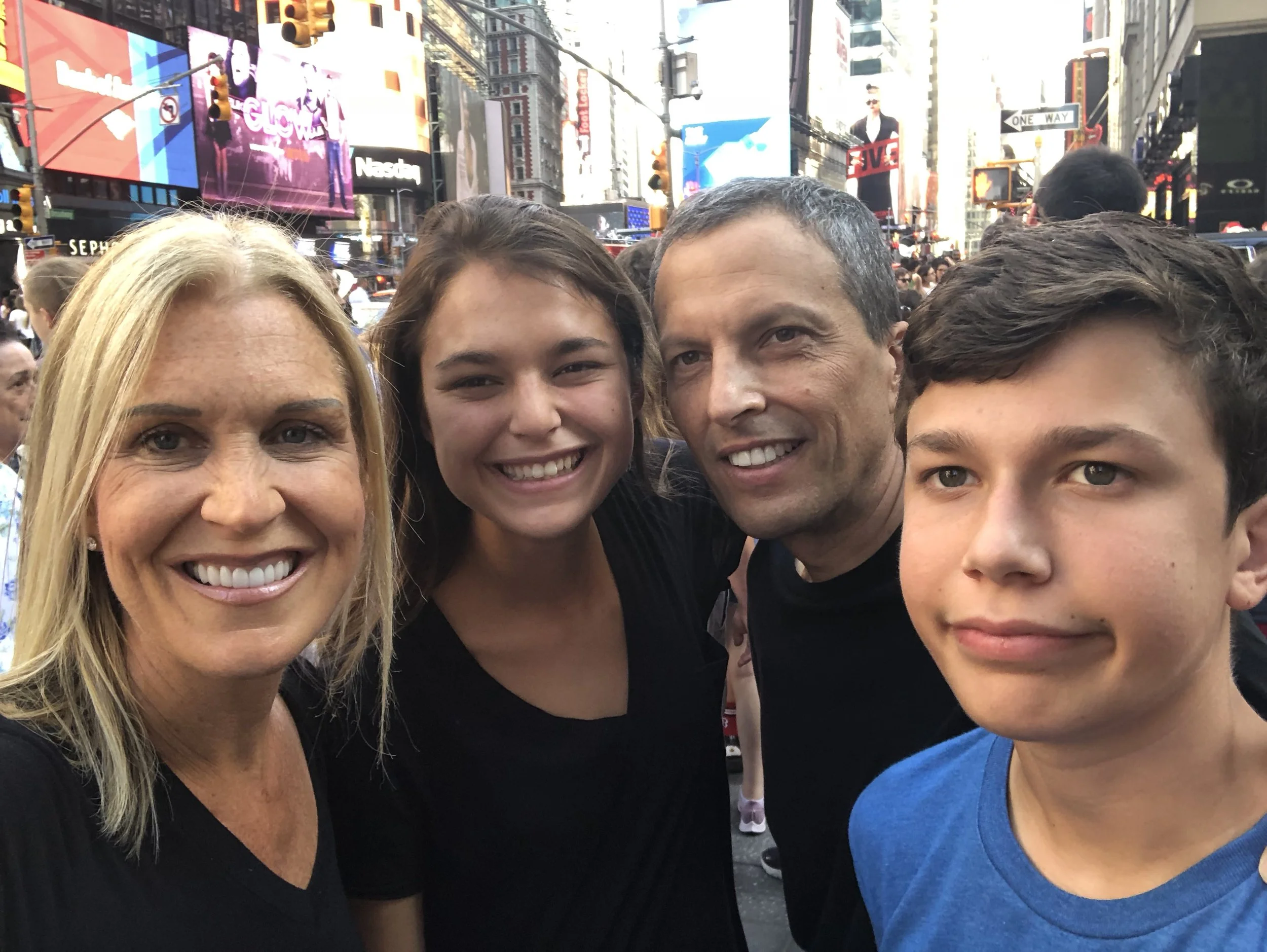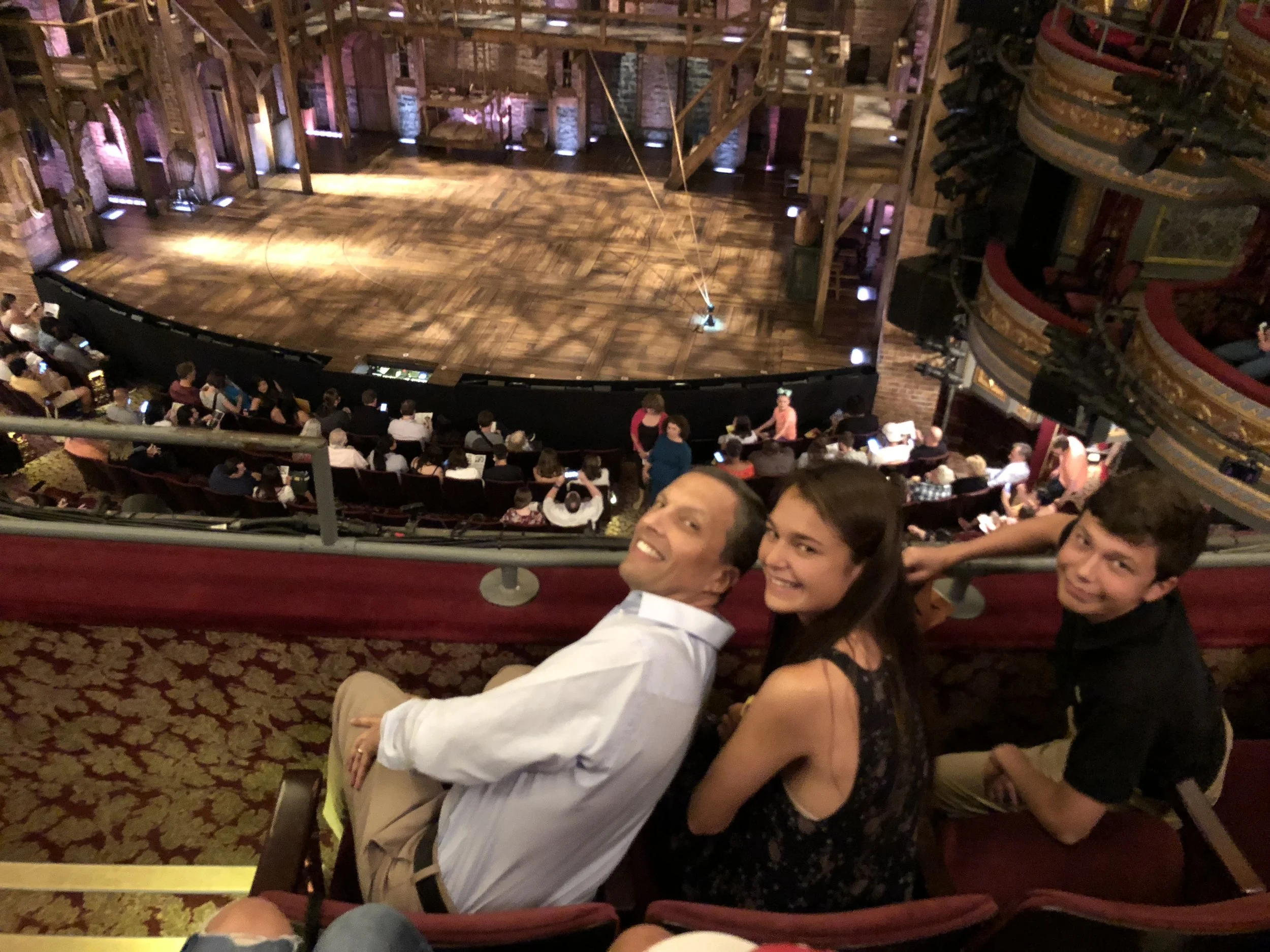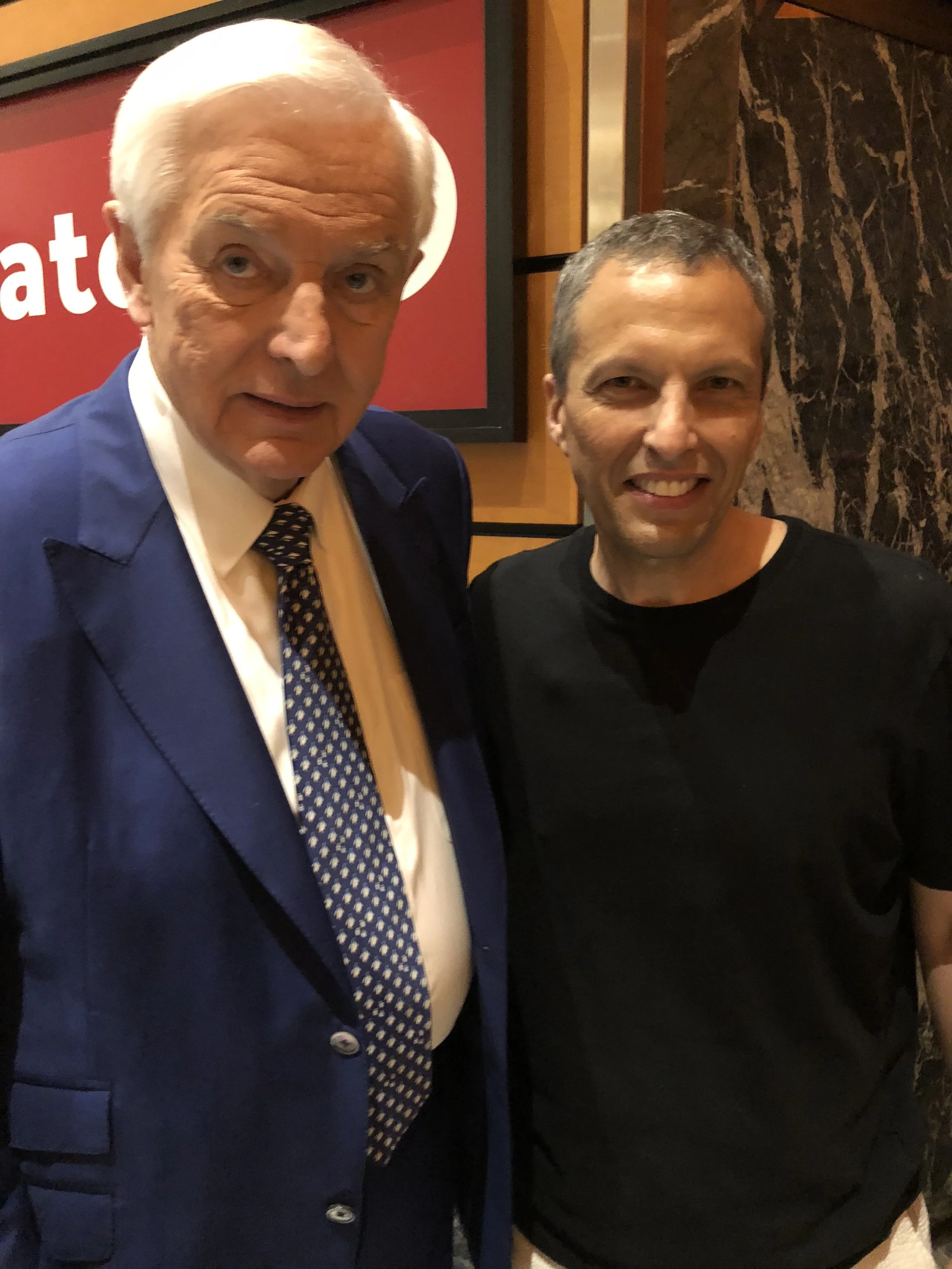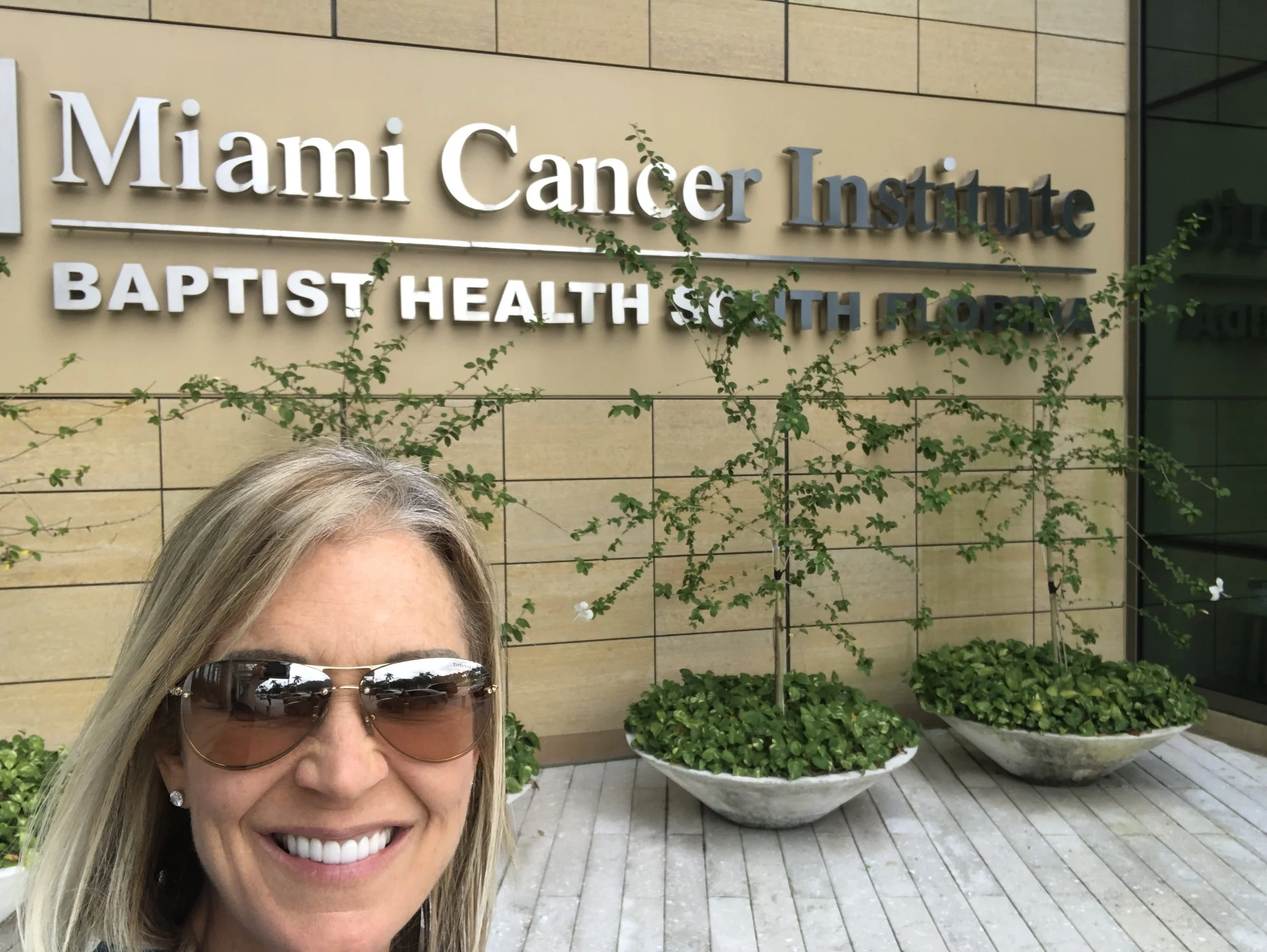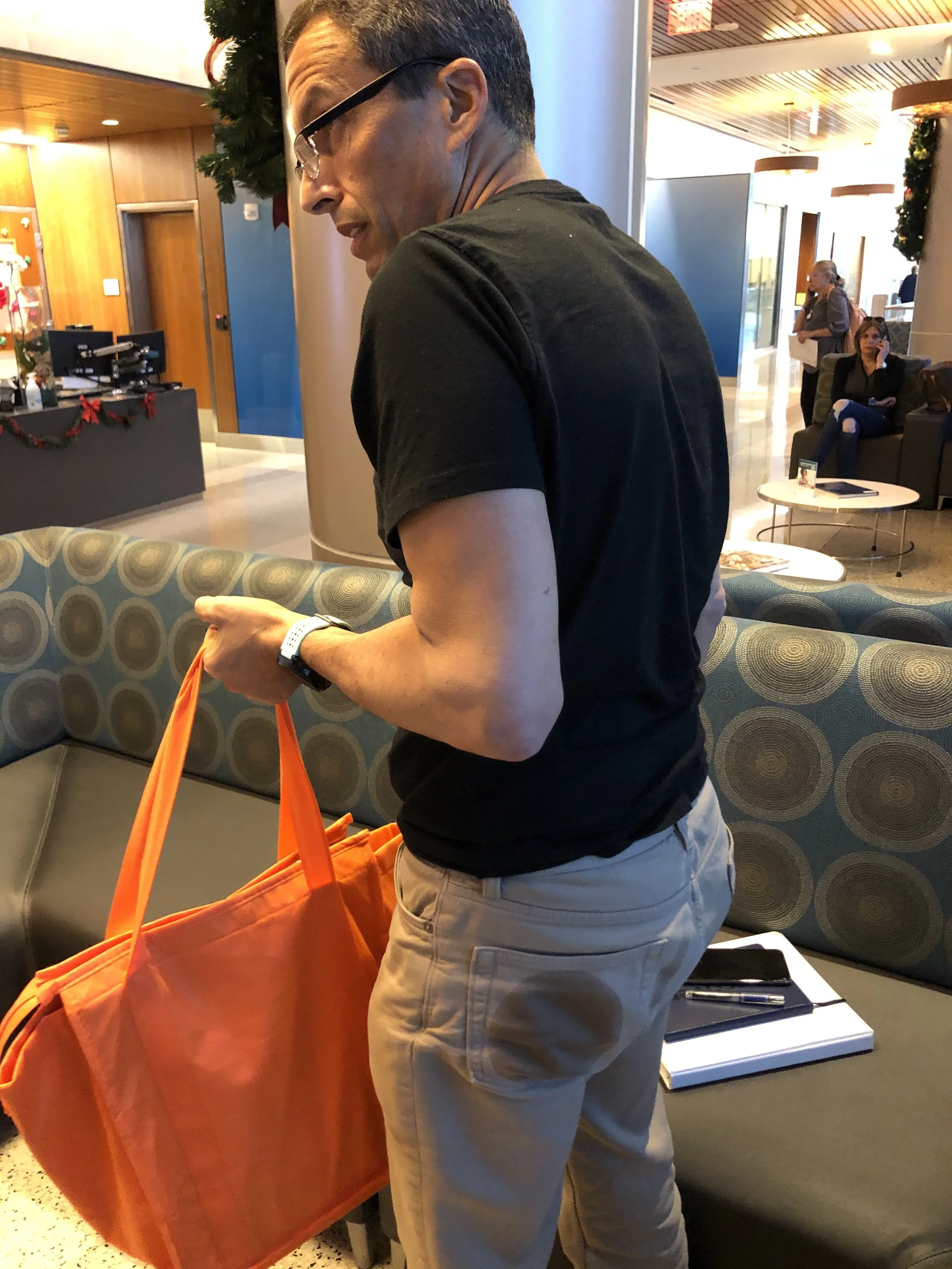Second Opinions
Second opinions can mean second, third, and even fourth opinions until you feel that your decision is confirmed by multiple doctors and you are at peace moving forward.
Our oncologists were both in favor of us getting second opinions, which was great. For Joel, we went to MD Anderson Center in Houston, TX, Memorial Sloan Kettering Center in New York, and our local Cleveland Clinic (many major hospitals have local branches in various cities). Similarly, we sought second opinions for me from Miami Cancer Institute and Memorial Sloan Kettering.
One idea is to redirect your family’s attention toward helping with the details of your trip. I didn’t ask for help, and I had so much on my plate that I once booked the wrong airline tickets for our flight home. I have never done anything like that before! It is also an overwhelming process to gather all of the medical records and submit the paperwork to the hospital’s portal. That is another area where a trusted family member or friend could help. There are many examples of ways that your support team can help you, but it’s up to you to seek the help. Don’t be stubborn like me and think you can do it all yourself. Visit the Teams page to learn more.
MD Anderson Hospital in Houston, Texas
Six weeks after Joel's surgery, we flew to Houston, Texas to visit MD Anderson. His oncologists were all in favor of us getting a second opinion. Joel went through a battery of tests, and then we met with several oncologists about chemotherapy who gave us the exact same opinion as our local hospital.
Second opinion at MD Anderson hospital in Houston, Texas - six weeks after Joel's surgery.
This confirmation was good for me to hear because I hadn’t been in favor of Joel doing conventional treatment. One of the renowned oncologists said, "Mrs. Herbst, if I could, I would chain your husband to this chair to do the treatment. He will not survive without chemotherapy." This really helped me get on board with what Joel felt he needed to do.
During this trip, Joel shared with me that he wouldn't feel like a good father if he didn't do the conventional treatment. He also committed to doing non-conventional treatments in conjunction. It was very important for me to come alongside Joel wholeheartedly and give him the support he needed.
While there, we also met with a radiation oncologist who felt that although radiation would be a good idea for Joel’s situation, it would be very risky in terms of future cancer risk, more possible adhesions (in addition to those created during surgery), and greater chance of bowel blockages, which Joel had been experiencing. At that appointment, Joel decided that he would table the discussion of radiation until chemotherapy was completed. This confirmed the opinion of Joel’s local radiation oncologist.
Cleveland Clinic
Our local Cleveland Clinic branch was about an hour drive from our home, but Joel strongly considered doing his chemotherapy there because he liked the oncologist so much. He asked very detailed questions about Joel’s history and was especially interested in the fact that Joel was obese as a child and that he gained 100 pounds at the age of 32. He shared with us that he believed so many younger adults were getting cancer due to being obese as a child and/or having a spike in their weight as an adult. He was constantly tracing colon cancer back to a time in their lives when their weight spiked. (That would have been 1999 for Joel.) He believed that Joel’s cancer was probably very slow growing and could possibly have started 20 years earlier.
Memorial Sloan Kettering in New York
Second opinion at Memorial Sloan Kettering hospital in New York.
Joel was so tired and weak as he went in for one of his last chemo treatments. Joel asked if we should go to Sloan Kettering for a third opinion regarding radiation, and the oncologist said, “Yes! That’s exactly what I was thinking. There is a well-respected doctor there. I went to school with him, and I recommend you see him, but I’m not sure you’ll be able to get an appointment. He is one of the lead doctors for colon cancer at Sloan. I don’t have a relationship with him now, so you’ll just have to try to get in with him.” He gave us the doctor’s name. It was my job to find this doctor and set up Joel’s appointment. We left the office and went into the chemo room for Joel’s treatment that day; it was a very difficult treatment because Joel was so exhausted. “
We were blessed to be able to bring the whole family with us when we visited New York City.
After we got home and Joel got in bed, I went outside to our neighborhood community grill to make dinner. I had to cook outside because Joel couldn’t tolerate the smell of food due to his nausea. It was all too much. I sat down by the grill and started crying. I couldn’t imagine another trip or more treatment for Joel. I was overwhelmed. A couple from our neighborhood was using the grill opposite of me. They noticed me crying and asked if I was alright. I proceeded to explain that Joel had cancer; we had just gotten home from a chemo treatment, and I needed to make Joel an appointment at Sloan Kettering. The husband perked up and said, “Really? My brother works at Sloan Kettering.” I said, “What is his name?” He said the name of the doctor that the oncologist recommended, and I cried even harder. Within a few minutes, he was on the phone with his brother setting up an appointment. It seemed too good to be true, but that is called a miracle.
While getting a second opinion at Sloan Kettering, we celebrated Hannah's 18th birthday by seeing Hamilton on Broadway.
It was an amazing moment and an answer to prayer. I heard God whisper to my heart, “All will be well. I am here.” I could not wait to get back inside and tell Joel that God had introduced me to the doctor’s brother.
Joel with David Jeremiah in New York.
We flew to NYC for this miracle to be set in motion. It also happened to be the weekend of our daughter’s eighteenth birthday. We surprised Hannah with tickets for all four of us to see the Broadway hit, Hamilton. Although we were in New York for a consultation for Joel, my heart felt lighter just to have our whole family on the trip. We were able to have some memorable moments as a family, intermingled with our appointments at Sloan Kettering. We met with the doctor and his team and they treated us like family. We knew our appointments were led by God, and we felt so encouraged to add these specialists to Joel’s medical team. We truly felt like they were on his side, ready to fight for him and support him however he needed in the future.
While in New York, we experienced another incredible God moment. We were in the lobby of our hotel, and Joel whispered to me, “Julie, I think I see Dr. David Jeremiah standing against the wall over there.” Dr. Jeremiah is a Christian author, pastor of a church in California, and a two-time cancer survivor. My parents had given Joel Dr. Jeremiah’s book, When Your World Falls Apart, and it encouraged him tremendously. We also listened to Dr. Jeremiah’s messages on Sundays. Of all the things Joel had read over the past year, Dr. Jeremiah’s books and sermons had been the most influential.
Joel said, “I’m going over to say ‘hi’ to him.” Sure enough, it was David Jeremiah! He and Joel talked for a while, and then before he left, he prayed with our family.
Dr. Jeremiah had become a key part of Joel’s spiritual journey, and there he was, just casually standing in the middle of a busy, hotel lobby in New York. What a providential experience! Once again, God reminded us that He was walking through the valley with us.
Miami Cancer Institute
Meeting with an oncologist and geneticist at Miami Cancer Institute to learn more about the cancer gene that I carried.
About a month after my second surgery, we went to the Miami Cancer Institute to seek a second opinion for me. We lived just over an hour from Miami. We met with an oncologist who strongly encouraged at least radiation and the hormone drug for me since I was dead set against chemo.
The hilarious moment at Miami Cancer Institute was captured!
On the same morning, I started a twenty-four hour urine test that my general doctor had ordered to check my cortisol levels. We had to carry around a large, orange container everywhere we went that day. They gave us a bag to carry it in and filled it with ice packs to keep the urine cool. Joel was being a sweetheart and carried the bag for me. After sitting in the waiting room for quite some time, Joel looked down and saw a wet spot on his pants. For a brief moment we thought it was my urine, but then we realized that it was just the ice packs leaking. We could not stop laughing! He spent the rest of the day patiently, continuously cleaning up the leaky bag.
When we finally got in to see the oncologist, she was amazed that Joel had all of my paperwork organized in a notebook and could immediately produce whatever documents she needed. I silently thanked God for Joel who was walking by my side through this journey — and even carrying my urine!
We returned to Miami Cancer Institute to meet with a Geneticist, someone who specializes in the science of genes. We wanted to confirm my family history, since the breast cancer came out of nowhere and was a complete shock to our family. Read “Cancer Gene Shocker” for more about this.
MEMORIAL SLOAN KETTERING
I also reached out to Memorial Sloan Kettering to get a second opinion. Since it was during Covid, I was able to get a second opinion virtually, but the appointment took longer than usual to schedule. As time elapsed and I was waiting for my virtual appointment, I was coming to a firm conclusion about not doing chemotherapy. During the appointment, the oncologist strongly advised that I do chemotherapy, radiation, and take the hormone drug. I had already made a decision in my heart not to do chemotherapy. But their strong recommendation definitely made me think carefully through my radiation and hormone drug decisions.
LOCAL ONCOLOGIST
Another local oncologist in my home town said that he was concerned about me not doing chemo, radiation, and hormone therapy because I was pre-menopausal before cancer and my Ki67 was more than 20%. Ki-67 is a special stain that gives a sense of the aggressiveness of a tumor. A result of less than 6% is considered low, 6-10% intermediate, and more than 10% is considered high.
What these second opinions did for me was make my motivation to live healthier and get my stress under control even greater.
In the end, although getting each of these opinions was time consuming, it gave us peace of mind that we had done our due diligence to make thorough decisions. Even though we both decided against some opinions, it was important to weigh all the details and facts before moving forward. Visit the Treatment page to learn more about seeking second opinions.
